Empowering Livelihoods through Improved Energy Access
The project empowers power loom weavers by enhancing their livelihoods through the integration of solar energy solutions
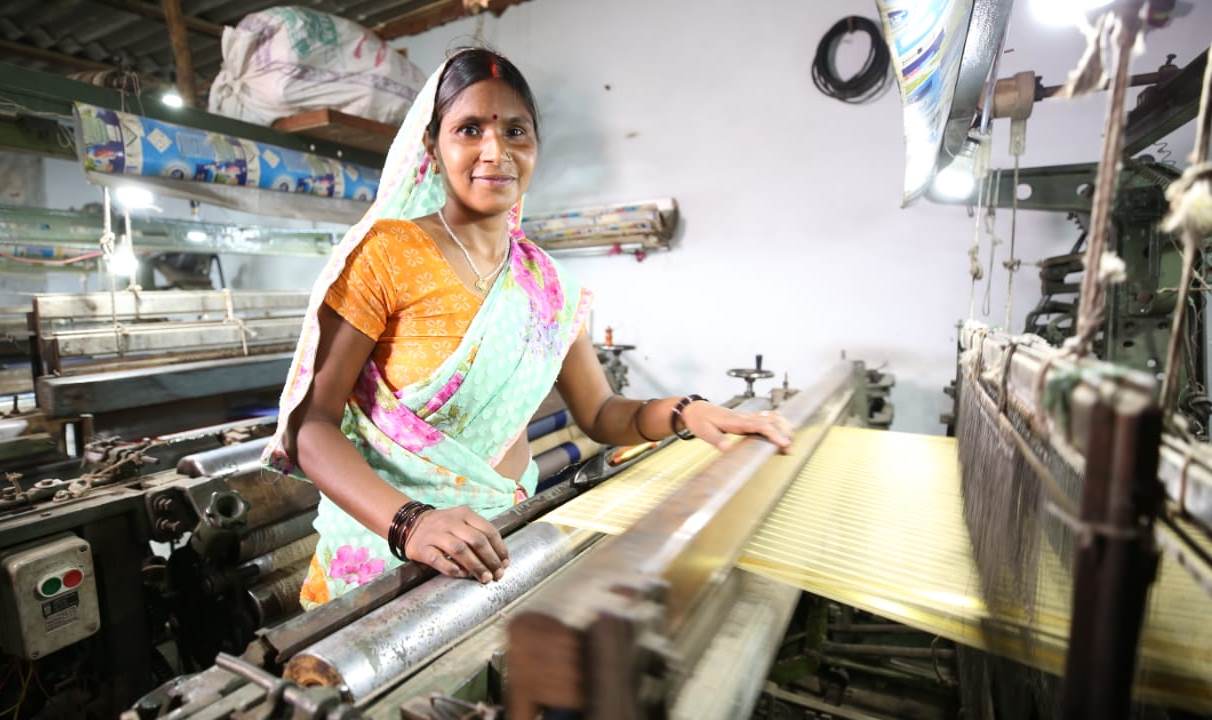
Introducing and promoting the adoption of solar energy technology to enhance livelihoods is a central focus of this energy provisioning project under TERI's "Energy Access for Livelihood Promotion" initiatives, supported by Indus Towers Limited. This intervention aims to develop and deliver tailored technology solutions specifically designed for the needs of weavers.
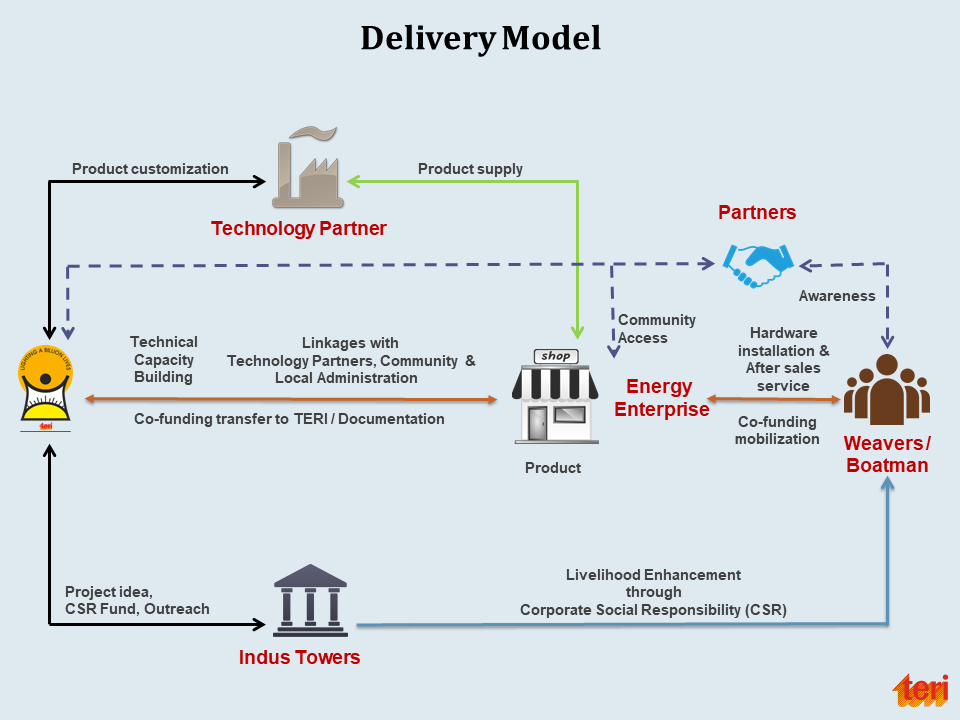
Delivery Model:
In this delivery model, TERI takes on the pivotal role of orchestrating the entire project, from strategic planning and tailoring innovative solutions to identifying and engaging partners—whether they be funding agency, technology providers, local institutions, or beneficiary groups. Our consultative, inclusive, and transparent methodology fosters strong, long-term partnerships at every level. A core aspect of our intervention is the continuous development of local institutions, which becomes the cornerstone for sustaining the initiative while also enabling the seamless replication and scaling of successful pilot projects. Central to the sustainability of our efforts is the comprehensive training and capacity building of communities, empowering them to maintain and manage the technology, ultimately leading to increased household incomes and economic resilience.
Unique features:
- Collaborative and participatory project approach
- Transparent and fair beneficiary selection process
- Strengthening and empowering local institutions
- Community-driven co-funding and ownership
- Tailored technology solutions to meet specific needs
- Swift and reliable after-sales service via local partners
- Extensive on-site warranty for peace of mind
- Capacity building for efficient operation, maintenance, and sustainability
- Continuous monitoring and technology upgrades for optimal performance
Solar hybrid charging stations
Over the past few years, TERI has collaborated with the renowned silk weavers of Varanasi to address their power demands, particularly for operating power looms. By installing lithium-based Hybrid Solar Charging Units (HSCU), TERI has ensured a reliable, uninterrupted power supply to the weaving community.
Varanasi, nestled on the sacred banks of the Ganga in Uttar Pradesh, is famed for its exquisite silk and globally celebrated Varanasi sarees. The weaving clusters here are also recognized by India's Ministry of Micro, Small and Medium Enterprises.
From 2017 to 2023, TERI installed 397 HSCUs at weavers' premises in a phased rollout—52 units in 2017-18, 54 in 2018-19, 84 in 2019-20, 134 in 2020-22, and 73 in 2022-23. Each HSCU powers four looms. Additionally, 60 units of DC-powered solar looms were also set up, further supporting the weavers.
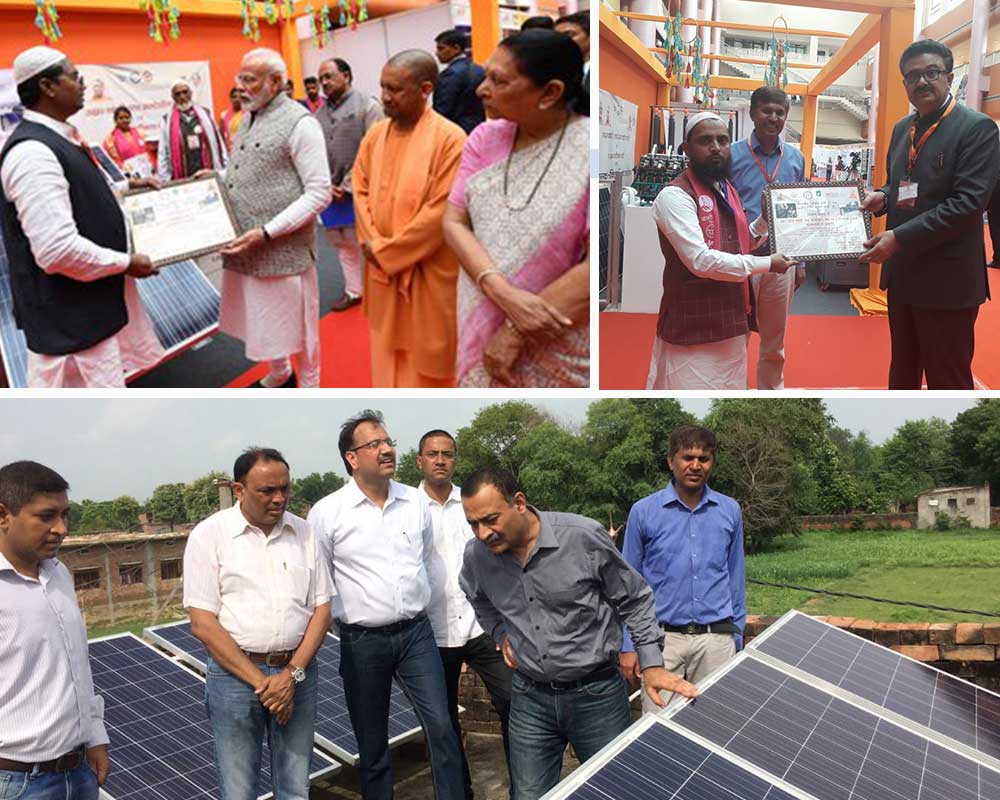
This innovative hybrid system, prioritizing solar energy, grid power, and a lithium battery, powers the looms directly from sunlight during the day. After sunset, the grid takes over as the primary energy source. In instances where both solar and grid power are unavailable, the lithium battery provides sufficient backup to keep the looms running for up to three hours.
To ensure the economic viability of these HSCU for the weavers, TERI designed the project such that the weavers only cover up to 40% of the hardware costs, with the remaining funding supported by the CSR initiative of Indus Towers Limited.
As a result of this project, weavers are witnessing significant improvements in their working conditions. The reliable power supply has eradicated production disruptions and enhanced product quality. Work hour management has become more efficient, minimizing wasted time due to power outages. Additionally, the phasing out of diesel generators has led to a cleaner and quieter local environment. Most importantly, these advancements have translated into increased income for both the weavers, who now earn 30% more, and the power loom owners, whose earnings have risen by 40%.
Expanding the scope of the intervention, TERI and Indus Towers Limited, have mutually committed to installing 95 HSCUs for power looms across various regions in Madhya Pradesh, Chhattisgarh, and Maharashtra during the 2023-25 period. This initiative aims to enhance the livelihoods of over 380 beneficiaries. In the first phase, as of June 2024, 27 HSCUs have already been successfully installed in Burhanpur, Madhya Pradesh.
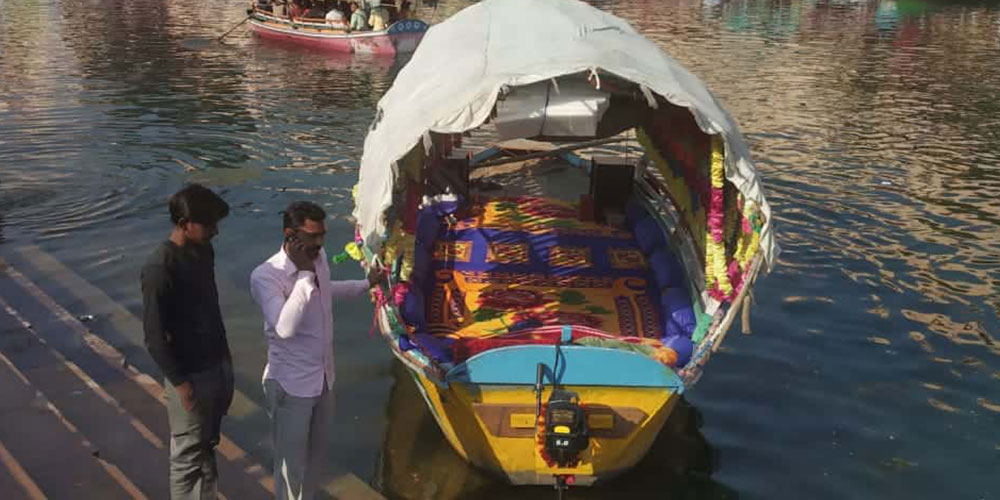
मंदाकिनी की अल्हड़ लहरों से लड़ने वाले अब सोलर नाव चलाते हैं
सौर शक्ति ने बदली चित्रकूट के नाविकों की ज़िंदगी। सोलर पैनल अब सिर्फ़ घरो के लिए नहीं बल्कि नाविकों के लिए भी फायदेमंद है।
Hybrid Solar System: End of 'Power' Struggle for Varanasi Weavers
The hybrid solar system is a momentous shift for weavers in Varanasi as it attacks the central weakness of inadequate and unreliable supply of grid power that had induced uncertainty in their business and imposed many unproductive hours every day. By adopting solar power, the weavers have uninterrupted, reliable power supply, more efficient work hour management, and a cleaner work environment - all contributing to higher income.
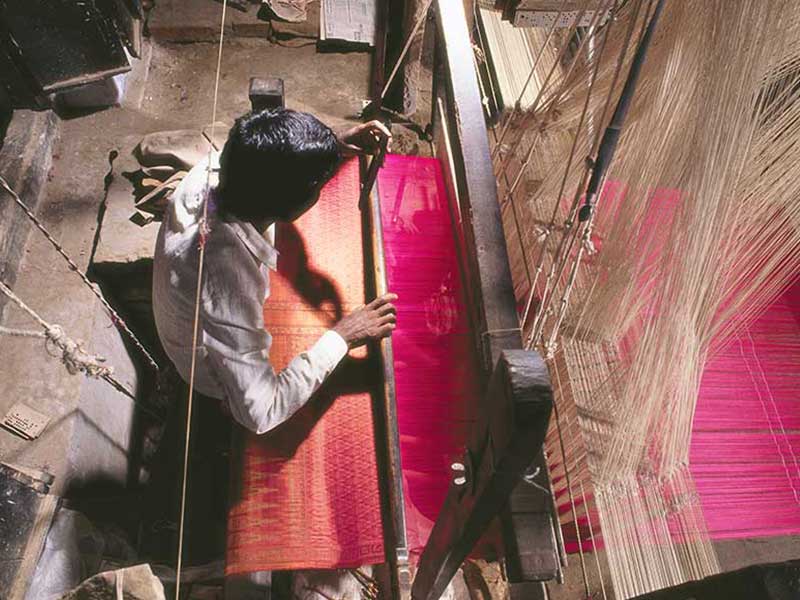
Boats ride into the lithium battery age: TERI's novel intervention
Under TERI's intervention, traditional boats are retrofitted with a trolling motor. Boatmen can rent batteries and recharge these at hybrid solar charging station operated and managed by the boatmen association. The business model involves renting batteries by boatmen who don’t have to bear any capital cost. The expenditure of retrofitting and those associated with the charging centre are financed by the Corporate Social Responsibility (CSR) fund mobilised by TERI.
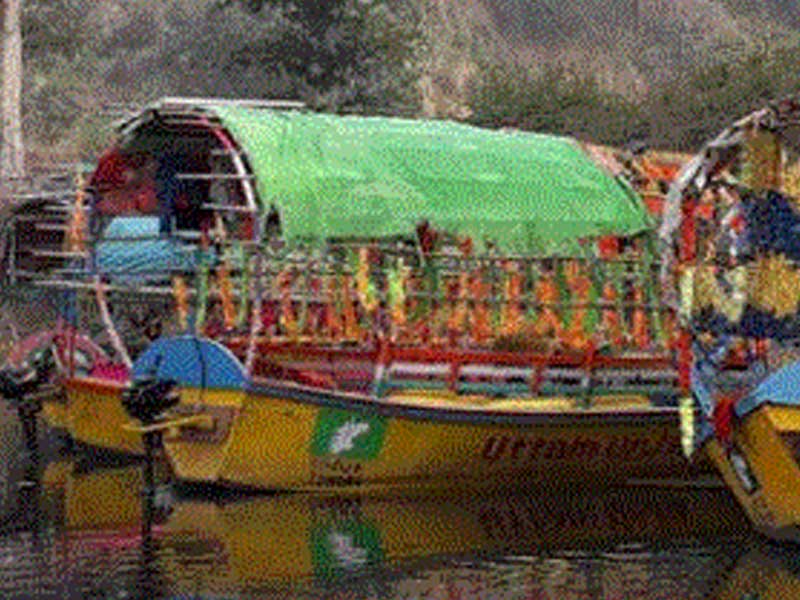
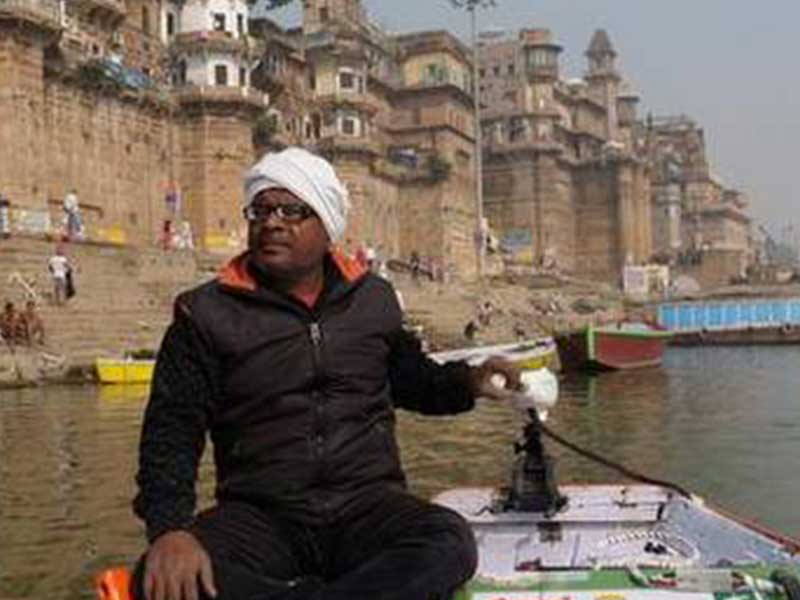
Solar sparks change in Varanasi
A TERI initiative has helped Varanasi's boatmen and weavers become eco-friendly.
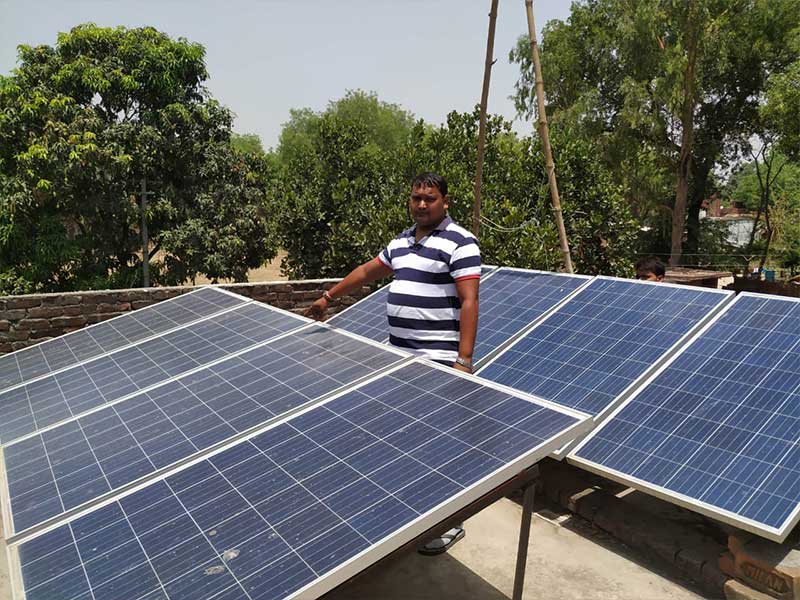
In Varanasi, New Solar Tech is Helping Beleaguered Saree Weavers Save Their Tradition
A customized system to harness solar energy was designed for weavers by TERI as the craft of saree making is complex and it requires varying degrees of power at a very short intervals.
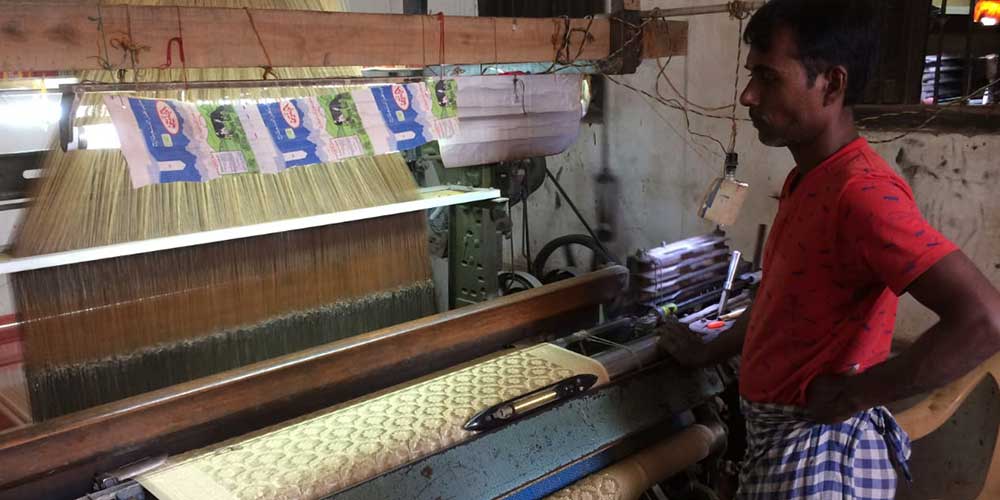
Powering the Ghats
Project team has developed a hybrid solar charging model that ensures continuous flow of electricity to the looms.
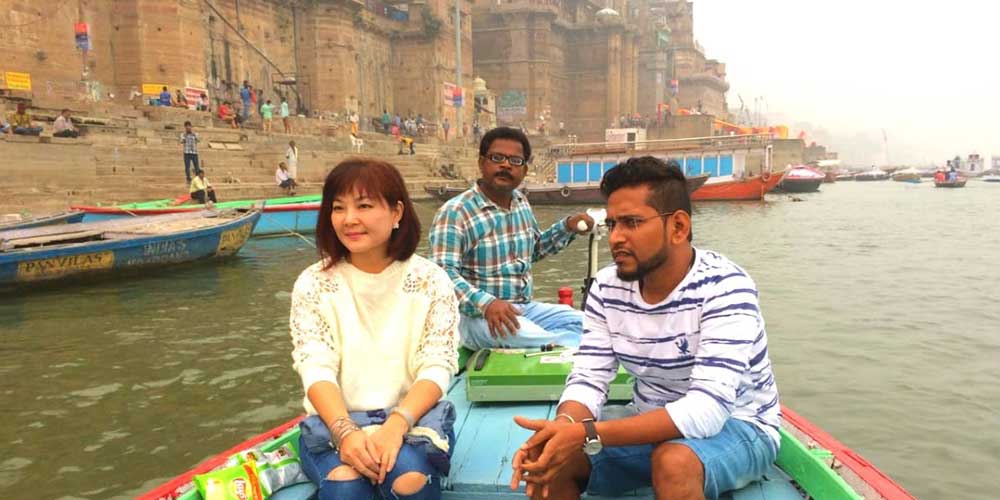
Banarasi Saris Powered By the Sun: TERI Helps 40 Boatmen, 400+ Weavers Go Green!
TERI engineers have developed a power back up, which takes a few microseconds to generate electricity.
